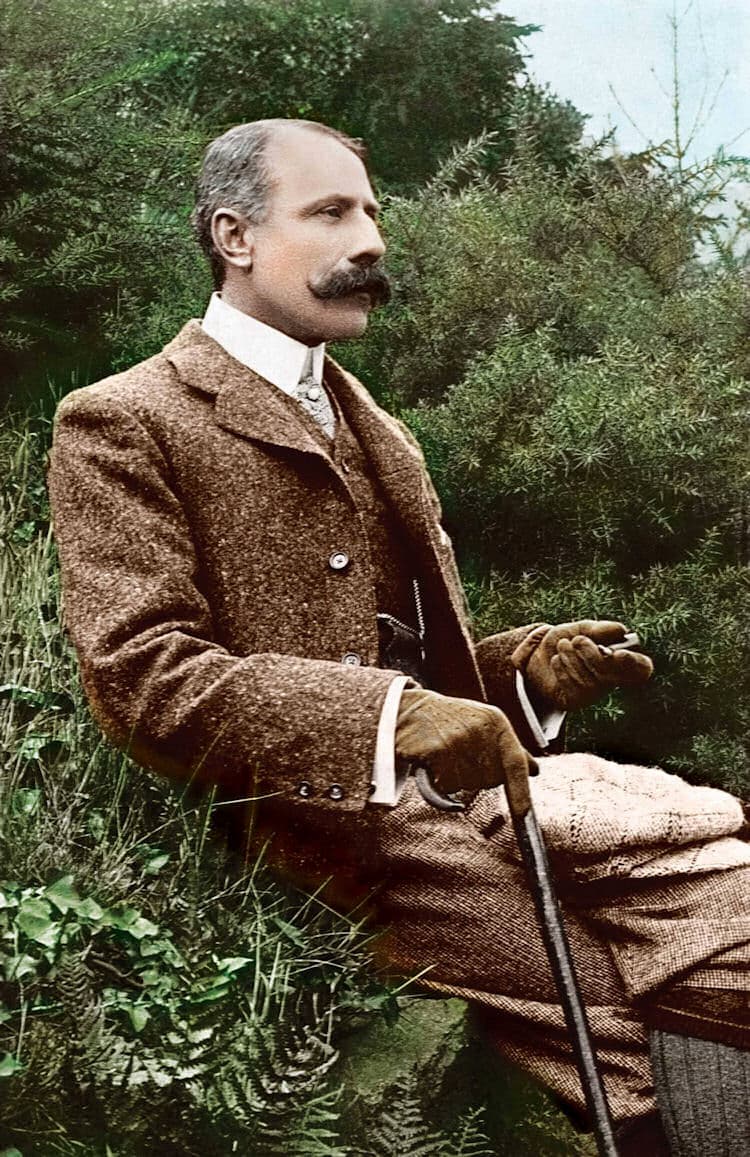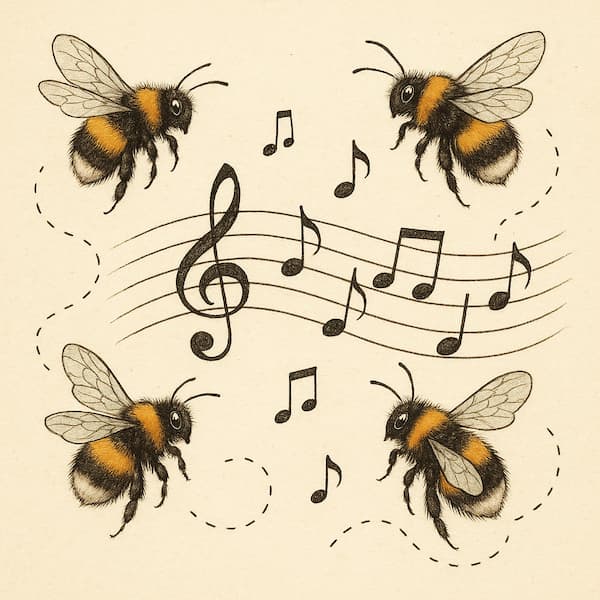The English conductor Martyn Brabbins decided that, after 120 years, Elgar’s Enigma Variations needed an update. As his own 60th birthday was coming in 2019, Brabbins commissioned, with the help of the BBC, ‘a new set of Enigma Variations’.

Edward Elgar
Elgar dedicated his 1899 work ‘to my friends pictured within’. Brabbins turned the idea around and asked several friends to write music about him. So we have Pictured Within—Birthday Variations for M.C.B. (Martyn C. Brabbins), which received its premiere at the BBC Proms on Brabbins’ 60th birthday, 13 August 2019.

Martyn Brabbins
Brabbins provided guidelines to his contributors: ‘”I was pretty firm with all the composers in that I would choose which variation of the Elgar they were to model their new piece upon. This was to ensure variety within the piece, plus I was pretty clear which composer’s style would fit which character enshrined in each of the Elgar Variations. And on a practical note – I didn’t want the new piece to sprawl!” To this end, the composers were all asked to keep their allotted variation to the same duration as their Elgarian equivalent.
The Theme is new, written by that age-old composer, ANON.
Anon: Pictured Within: Birthday Variations for M.C.B. – Theme (BBC Scottish Symphony Orchestra; Martyn Brabbins, cond.)
The following 14 variations were written by Sally Beamish, Colin Matthews, Brett Dean, Harrison Birtwhistle, Judith Weir, Gavin Bryars, Kalevi Aho, Anthony Payne, and others.
Variation 3 in the Enigma Variations was for ‘R.B.T.’, i.e. Richard Baxter Townshend, and presents R.B.T’s activities in amateur theatricals.
Edward Elgar: Variations on an Original Theme, Op. 36, “Enigma” – Variation 3: R. B. T. (Richard Baxter Townshend) (Academy of St. Martin in the Fields Orchestra; Neville Marriner, cond.)
Sally Beamish chose to highlight Brabbins’ activities on the trombone, producing a ‘jazz-infused, quirky variation.’
Sally Beamish: Pictured Within: Birthday Variations for M.C.B.: Variation 3 (BBC Scottish Symphony Orchestra; Martyn Brabbins, cond.)
Variation 6 in Elgar, ‘Ysobel’, was dedicated to Isabel Fitton, a viola student of Elgar’s. The variation itself is an etude on ‘crossing the strings’, a difficult technique for beginners to conquer.
Edward Elgar: Variations on an Original Theme, Op. 36, “Enigma” – Variation 6: Ysobel (Academy of St. Martin in the Fields Orchestra; Neville Marriner, cond.)
Brett Dean, himself a professional violist, made his viola etude a bit more substantial.
Brett Dean: Pictured Within: Birthday Variations for M.C.B. – Variation 7 (BBC Scottish Symphony Orchestra; Martyn Brabbins, cond.)
The most famous movement of the Enigma Variations is variation 9, ‘Nimrod’. Dedicated to Augusts J. Jaeger, a music editor for Novello and Co. The two were close friends, and Elgar treasured the severe criticism of his music that Jaeger gave him, which he felt encouraged him as an artist.
Edward Elgar: Variations on an Original Theme, Op. 36, “Enigma” – Variation 9: Nimrod (Academy of St. Martin in the Fields Orchestra; Neville Marriner, cond.)
The ‘Nimrod’ movement was given to Sir Harrison Birtwhistle who responded with a serious and deep work that is far from Elgar’s language, but similar to it in spirit.
Harrison Birtwhistle: Pictured Within: Birthday Variations for M.C.B. – Variation 9 (BBC Scottish Symphony Orchestra; Martyn Brabbins, cond.)
Variation 10, ‘Dorabella’, portrays a friend, Dora Penny, who was a stutterer. Her biography on Elgar was one of the keys to deciphering the Enigma Variations.
Edward Elgar: Variations on an Original Theme, Op. 36, “Enigma” – Variation 10: Intermezzo: Dorabella (Dora Penny) (Academy of St. Martin in the Fields Orchestra; Neville Marriner, cond.)
In her take on M.C.B., Scottish composer Judith Weir brought him ‘Sixty Salutations’, 60 tiny fanfares that showed what she says as Martyn’s personality and disposition of warmth and geniality.
Judith Weir: Pictured Within: Birthday Variations for M.C.B. – Variation 10: Sixty Salutations (BBC Scottish Symphony Orchestra; Martyn Brabbins, cond.)
The last variation in the Enigma is about Elgar himself, ‘E.D.U.’, the abbreviated German spelling of his name Edward as Eduard.
Edward Elgar: Variations on an Original Theme, Op. 36, “Enigma” – Variation 14: Finale: E. D. U. (The Composer) (Academy of St. Martin in the Fields Orchestra; Neville Marriner, cond.)
In his conclusion to the new variation set, John Pickard created an ‘extended and energetic finale’ with more than a few allusions to the Engima original.
John Pickard: Pictured Within: Birthday Variations for M.C.B. – Variation 14: The Art of Beginning (BBC Scottish Symphony Orchestra; Martyn Brabbins, cond.)
It’s a real education in music style to see how the work of one composer, Elgar, is taken up by later composers and modernized. New musical elements from jazz to minimalism have their place in the new sound and yet, the connection with the older piece remains. The new work will never replace it but gives us an opportunity to think about what Elgar brought to modern musical language.
For more of the best in classical music, sign up for our E-Newsletter

